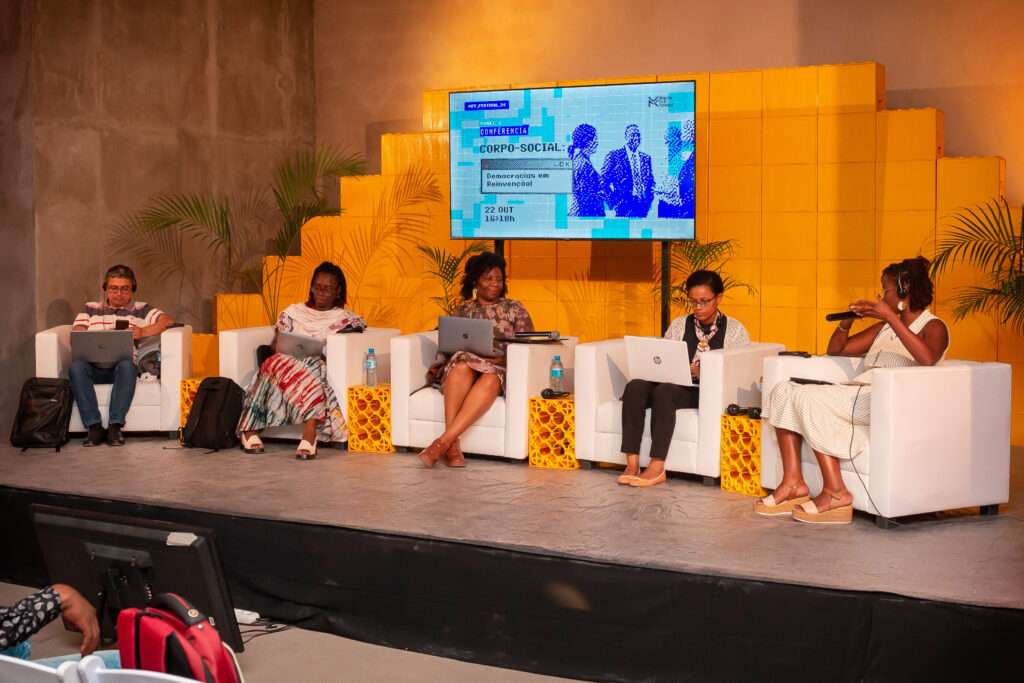Globally, democracy has faced crises. In Africa and the Global South, the situation worsens with post-election conflicts, wars, and coups. Moderated by Fidélia Chemane, an expert in governance and women’s rights, the panel titled “Social Body: Democracies in Reinvention” discussed contemporary democracies and reflected on their future, focusing on new political dynamics and citizen participation in times of transformation.
João Feijó, a researcher and expert in African studies, presented data relevant to the socio-political analysis of Mozambique, including population growth, unemployment, and hunger rates, as well as the low quality of education that limits democratic debate.
He argued that “the population knows little or nothing about socialism, social democracy, or communism, which hinders politicians’ ability to create mature political projects. Basically, political promises are like shopping lists (we’ll provide energy, water, schools), but there’s no explanation of the economic doctrine to be followed.” Major structural economic issues, such as centralization and decentralization, economic diversification, birth rates, and education, are not considered in electoral promises.
Annick Adopo, an Ivorian researcher in legal and political sciences, pointed out that the process of reinventing democracies begins with people managing their own democracy. Given the violence and post-election conflicts worldwide, she advocates for training political party members.
“Teaching the possibility of losing is essential. It’s a game. We win or lose, but if we can’t prepare our members for losses, things won’t go well,” said Adopo, adding that “citizenship education may allow for the reinvention of democracy in the African context.”
There are voices that are silenced. Marie Boka, a political scientist and international relations specialist from Côte d’Ivoire, gave examples of young people and women, who are often offered limited and specific spaces for dialogue. She said, “To live together on this earth, everyone must have a voice in decision-making. We need education that allows us to understand the reality of our country and express ourselves wisely.”
Kamina Diallo, an expert in security and gender, presented her research on the disarmament, demobilization, and reintegration (DDR) process of women involved in the Ivorian civil war from 2002 to 2011. Given Mozambique’s similar situation with the disarmament and reintegration of Renamo fighters, her insights highlighted the specific challenges faced by women.
“Part of the depoliticization of female ex-combatants is the gendered assumption that women, unlike men, do not need to forge a new post-conflict role in society; they can return to their domestic duties. But not all Ivorian women could reintegrate easily, as their status as ex-combatants carried a stigma, affecting relationships with their families, friends, and communities,” said Diallo.
Felizarda Nhare
All the panels from the MFF2024 international conference will soon be online on our YouTube channel, so keep up to date.



